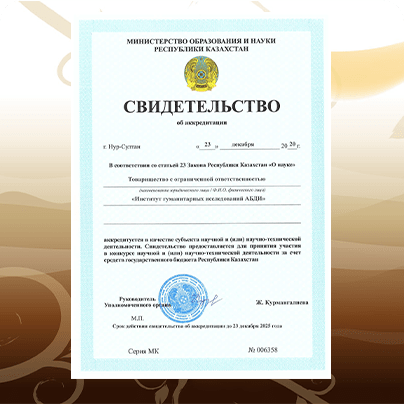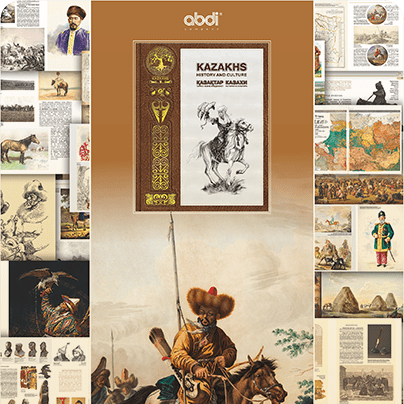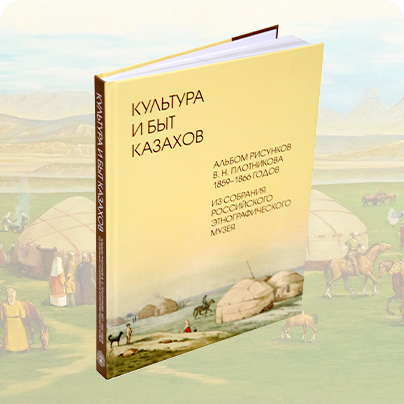News
23 December 2020
On December 23rd, 2020, the “Institute for Humanities Studies ABDI”, LLP, in accordance with the 23rd article of the Law of the Republic of Qazaqstan "On Science", received a Certificate of Accreditation as a subject of academic (or) scientific and technical activities dated December 23, 2020, No. 006358.
The certificate is provided for participation in the competition of scholarly and (or) scientific and technical activities at the expense of the state budget of the Republic of Qazaqstan.
The management and staff of the Institute express their gratitude to the management and staff of the Science Committee of the Ministry of Education and Science of the Republic of Qazaqstan for the trust and support of Qazaqstani science!
We really hope that our Institute will justify the trust, and we will be able to make our contribution to the development of national historical science!
The certificate is provided for participation in the competition of scholarly and (or) scientific and technical activities at the expense of the state budget of the Republic of Qazaqstan.
The management and staff of the Institute express their gratitude to the management and staff of the Science Committee of the Ministry of Education and Science of the Republic of Qazaqstan for the trust and support of Qazaqstani science!
We really hope that our Institute will justify the trust, and we will be able to make our contribution to the development of national historical science!
23 October 2020
On October 23rd, 2020, a new LLP named the “Institute for Humanities Studies ABDI” was established in Almaty.
The Institute for Humanities Studies ABDI is a modern non-state research, expert, and publishing center in the field of national history and culture.
The new institute has founded on the basis of the publishing department of the “ABDI Company” JSC, with its prolific academic and publishing activity.
The staff of the Institute have prepared and published such voluminous books as “The Big Atlas of the History and Culture of Qazaqstan” (Qazaq edition, 2010 and Russian edition, 2008), “The Qazaqs. History and Culture”, etc.
In total, 14 books, dozens of scholarly articles and media presentations have been published.
The book editions of the Institute, dedicated to the history and culture of Qazaqstan, have gained national and international recognition, being highly appreciated by the expert community both in Qazaqstan and abroad. These are the high-quality scholarly and educational books, and each can be a wonderful gift for all connoisseurs of the history of Qazaqstan, as well as for guests and tourists. The Institute publishes the works of prominent Qazaq and foreign researchers of the history of Qazaqstan and Eurasia.
The Institute cooperates with leading scholarly, archival, museum and library institutions in Qazaqstan, Russia, Ukraine, Turkey, France, Great Britain, and the USA.
The main activity of the Institute aims at conducting research in the field of the Humanities. Special attention is focused on the study of the history and culture of the Qazaq people, as well as on the popularization of the newest scholarly research in the history of Qazaqstan and neighboring states. The Institute is engaged in educational, academic, and publishing activities.
The Institute for Humanities Studies ABDI is a modern non-state research, expert, and publishing center in the field of national history and culture.
The new institute has founded on the basis of the publishing department of the “ABDI Company” JSC, with its prolific academic and publishing activity.
The staff of the Institute have prepared and published such voluminous books as “The Big Atlas of the History and Culture of Qazaqstan” (Qazaq edition, 2010 and Russian edition, 2008), “The Qazaqs. History and Culture”, etc.
In total, 14 books, dozens of scholarly articles and media presentations have been published.
The book editions of the Institute, dedicated to the history and culture of Qazaqstan, have gained national and international recognition, being highly appreciated by the expert community both in Qazaqstan and abroad. These are the high-quality scholarly and educational books, and each can be a wonderful gift for all connoisseurs of the history of Qazaqstan, as well as for guests and tourists. The Institute publishes the works of prominent Qazaq and foreign researchers of the history of Qazaqstan and Eurasia.
The Institute cooperates with leading scholarly, archival, museum and library institutions in Qazaqstan, Russia, Ukraine, Turkey, France, Great Britain, and the USA.
The main activity of the Institute aims at conducting research in the field of the Humanities. Special attention is focused on the study of the history and culture of the Qazaq people, as well as on the popularization of the newest scholarly research in the history of Qazaqstan and neighboring states. The Institute is engaged in educational, academic, and publishing activities.
30 September 2020
The Institute for Humanities Studies ABDI and the ABDI Company JSC in cooperation with the Russian Ethnographic Museum have published a new book:
Qazaq Culture and Mode of Life. Album of drawings by V.N. Plotnikov, dated 1859–1866. From the Collection of the Russian Ethnographical Museum / Edit. By K. Uskenbay. Almaty: ABDI Company JSC, 2021. 254 p. Scholarly edition. «The Qazaqs. History and Culture» series.
For the first time, a unique album of watercolor drawings of Qazaq household items, made in 1859-1866 by Vladimir Nikolaevich Plotnikov (1832-1875) is published in full. In total, the album contains 45 sheets with 253 images.
The publishers have accompanied the album with a preface and an introduction, several original research materials on the life, work, and creative heritage of V. N. Plotnikov, scholarly comments on the images of the album, as well as a glossary, a bibliography, and indexes.
The undoubted advantage of the book is the publication of 120 rare archival and museum photographs and drawings as direct analogues of the drawings of the album.
The book is meant for to researchers, teachers, students, museum workers, as well as a wide range of readers interested in the history and culture of the Qazaq people.
Read about this and much more in our new book!
The book can be purchased at the stores of the ABDI Company JSC. Product code 265144. Price 12000 tg.
Qazaq Culture and Mode of Life. Album of drawings by V.N. Plotnikov, dated 1859–1866. From the Collection of the Russian Ethnographical Museum / Edit. By K. Uskenbay. Almaty: ABDI Company JSC, 2021. 254 p. Scholarly edition. «The Qazaqs. History and Culture» series.
For the first time, a unique album of watercolor drawings of Qazaq household items, made in 1859-1866 by Vladimir Nikolaevich Plotnikov (1832-1875) is published in full. In total, the album contains 45 sheets with 253 images.
The publishers have accompanied the album with a preface and an introduction, several original research materials on the life, work, and creative heritage of V. N. Plotnikov, scholarly comments on the images of the album, as well as a glossary, a bibliography, and indexes.
The undoubted advantage of the book is the publication of 120 rare archival and museum photographs and drawings as direct analogues of the drawings of the album.
The book is meant for to researchers, teachers, students, museum workers, as well as a wide range of readers interested in the history and culture of the Qazaq people.
Read about this and much more in our new book!
The book can be purchased at the stores of the ABDI Company JSC. Product code 265144. Price 12000 tg.





